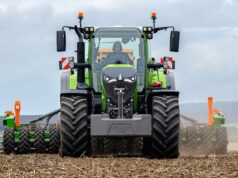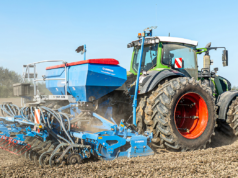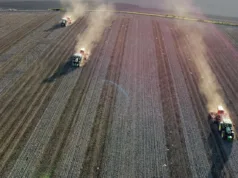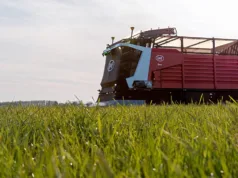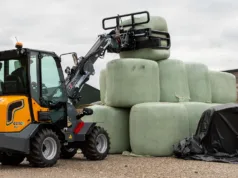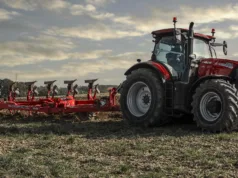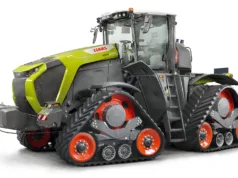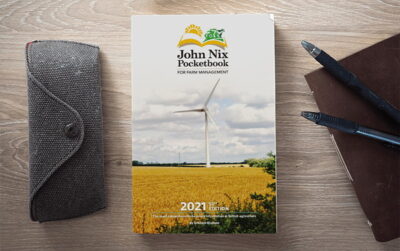 The newly published John Nix Pocketbook for Farm Management explains why there are currently more challenges in farming than t any time in the past 50 years.
The newly published John Nix Pocketbook for Farm Management explains why there are currently more challenges in farming than t any time in the past 50 years.
The number and size of issues for agriculture to tackle have not been so great for many years, according to the guest foreword writer for the pocketbook, Denis Chamberlain. He cites Covid-19, Brexit and awful weather as the three main industry-wide challenges.
Covid-19 had an effect on all supply chains, market volatility and public spending, Mr Chamberlain says. This is explored in detail in a dedicated analysis of the effect of Coronavirus on UK agriculture within the book.
“With sudden changes in where, how and what people eat, the responsibility of the food and farming sector to keep people fed and therefore healthy has been considerable,” adds the author of the John Nix Pocketbook, Graham Redman. “Couple this with some hiccups in food supply and the overall challenge has been substantial.”
“Nobody in the UK has gone hungry because of food supply chain failures” Mr Redmand says, pointing out how remarkably adaptive the industry has been to achieve that. He notes how the food supply industry, including farming has demonstrated astonishing resilience and flexibility, responding to the challenge and responsibility of keeping people fed.
Brexit and the resulting rewriting of trading relationships and farm support policies is the second concern cited in Mr Chamberlain’s foreword to the new edition.
“It could send agriculture in one of two directions in 2021,” Mr Redman says.
The book takes a brief look at the impacts of trade changes and explores the planned changes to policy throughout the UK in detail. It explains how policy plans are changing throughout the UK, leading to varying devolved rules and new ways of farming for many.
“This will offer opportunities for some, but lower subsidy claims for others,” Mr Redman adds.
Third, as farming emerges from the most unsuitable weather conditions for many crops in most people’s living memory, it might be well into 2021 by the time financial implications become fully felt, when crop sales do not meet the usual levels on many farms.
The whole-farm costings chapter of the pocketbook demonstrates wide variations in budgeted profitability in 2021 between sectors and also farmers. It has a series of whole-farm costings showing the profit and loss of key farm systems. It includes both figures from the average and the better performers summarised here.
Summary of Nix Pocketbook’s Whole Farm Costings 2021 (£/ha)
|
Combinable Crops |
Dairy |
Lowland |
Upland |
|||||
| Performance level |
Average |
High |
Average |
High |
Average |
High |
Average |
High |
| Farm gross margin |
690 |
850 |
1911 |
2183 |
393 |
715 |
258 |
436 |
| Total fixed costs |
675 |
608 |
1515 |
1364 |
935 |
842 |
490 |
441 |
| Margin before rent and finance |
15 |
242 |
396 |
819 |
-542 |
-127 |
-232 |
-5 |
| Less Rent and finance |
145 |
145 |
215 |
215 |
100 |
100 |
55 |
55 |
| Plus Support and diversification |
234 |
238 |
251 |
255 |
374 |
382 |
257 |
260 |
| Business profit (loss) |
104 |
335 |
432 |
859 |
-268 |
155 |
-30 |
200 |
The table reinforces the comments by Mr Chamberlain that now, more than ever before, the difference between average and best performance is immense.
“To survive, let alone thrive, managers must be at the top of their game in the year ahead,” he says.
The book also has a new section exploring grenhouse gas emissions (GHG) calculated from fuel emission estimates.
“As we emerge from Covid-19 restrictions we must become more aware of our greenhouse gas emissions,” Mr Redman says, “and with Government help, then learn to change farming to reduce or remove them.”
The book has been updated for 2021 with over 100 enterprises costed for the year ahead, including overheads, capital and other farming costs. It recognises that farming will continue however challenging the coming months turn out to be, and farmers and managers must continue to focus on what they have control over within their farming systems.
The John Nix Pocketbook, which costs £30.00 plus postage and packaging, is designed to help farmers, students and other agribusiness professionals to understand their farms, the industry and the opportunities that it offers.
For more information visit: www.thepocketbook.co.uk.


